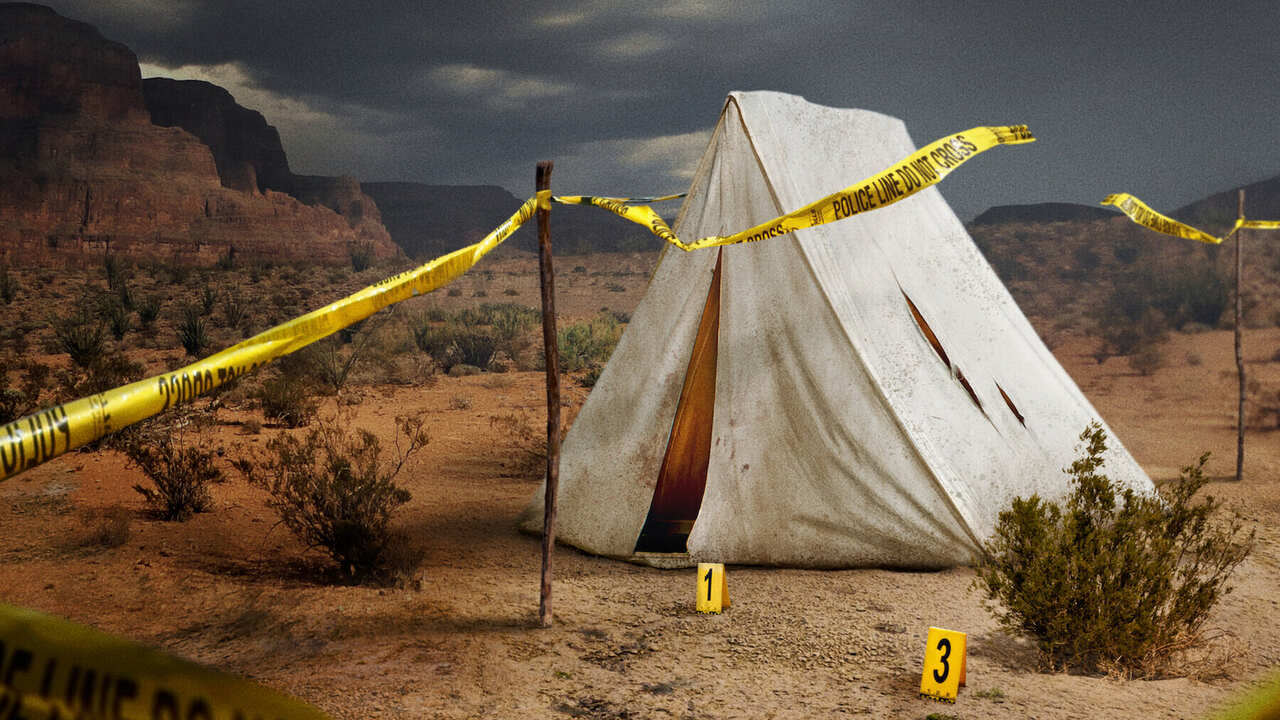
Nestled amid Utah's majestic canyons, where sun-kissed sandstone whispers tales of ancient spirits, lies a darkness so profound it chills the soul. This isn't a ghost story spun under starlit skies; it's the disturbing reality exposed in Netflix's documentary "Hell Camp: Teen Nightmare." For beneath the picturesque veneer of the American West lurks the Challenger Foundation, a notorious "wilderness therapy" program that promised teenage redemption through a crucible of hellfire.
Directed by the unflinching Liza Williams, "Hell Camp" doesn't shy away from the ugly truth. We're plunged headfirst into the world of the program's founder, Steve Cartisano, a charismatic ex-military man whose methods resembled torture more than therapy. 63 days of forced marches, sleep deprivation, and relentless psychological manipulation awaited troubled teens sent there by desperate parents. The film unveils a tapestry of harrowing testimonies, chilling archival footage, and expert insights, weaving a story so raw it bleeds into your marrow.
Instead of nurturing souls, the Challenger Foundation thrived on breaking them. Cameras capture the crushing humiliation of naked ice baths, the gnawing hunger for food rations barely fit for livestock, and the soul-crushing despair of sleep deprivation. Witnessing these teenagers, stripped bare of their dignity and autonomy, is to become an unwilling accomplice, forced to confront the darkest corners of human cruelty disguised as rehabilitation.
But "Hell Camp" doesn't merely wallow in voyeurism. It meticulously dissects the system that allowed this monstrosity to exist. Interviews with former staff members peel back the layers of Cartisano's carefully constructed PR machine, revealing a culture of fear, obedience, and exploitation. We see how profit trumped well-being, how cries for help were met with callous indifference, and how the "tough love" narrative masked a sinister reality.
However, the film's strength lies not only in its unflinching exposé but also in its human stories. We meet former campers – now adults scarred by their experiences – who recount the lasting trauma: the panic attacks triggered by the scent of pine needles, the crippling fear of the dark, and the shattered trust in authority figures. Their faces, etched with pain and defiance, become mirrors reflecting the broken promises and shattered lives left in the camp's wake.
While "Hell Camp" undeniably succeeds in eliciting outrage and introspection, it isn't without its weaknesses. The focus on Cartisano, however captivating, risks obscuring the larger systemic issues that enabled the program's existence. The lack of in-depth exploration of the long-term psychological damage on survivors leaves a hollowness at the film's core. One craves closure, a glimpse of healing beyond the scars.
Yet, despite these imperfections, "Hell Camp" remains a vital, haunting piece of documentary filmmaking. It's a wake-up call to a society quick to outsource its troubled youth to programs promising miracles but delivering nightmares. It compels us to question the boundaries of "tough love," to scrutinize the systems entrusted with our children's well-being and to remember that sometimes, the path to redemption can pave the way to hell.
So, step into the wilderness Williams creates, not for entertainment, but for education. Confront the darkness she exposes, not to sensationalize, but to understand. Because the true horror of "Hell Camp" lies not in the brutal methods or the charismatic manipulator, but in the chilling realization that this story isn't unique.
It's a cautionary tale whispered across America, a reminder that beneath the postcard landscapes of our wilderness programs, dark secrets can fester, ready to claim vulnerable souls in the name of redemption.
Final Score – [7/10]
Reviewed by - Arpita Mondal
Publisher at Midgard Times
Hi Everyone, after a due consideration, we have decided that we will be open for donations to help us in managing our website. We will be greatful for any kind of amount we receive. Thanks!
— Midgard Times 🎬 (@Moviesr_net) January 4, 2026
PayPal- [email protected] pic.twitter.com/DlNNz5Npm5
Get all latest content delivered to your email a few times a month.
Bringing Pop Culture News from Every Realm, Get All the Latest Movie, TV News, Reviews & Trailers
Got Any questions? Drop an email to [email protected]